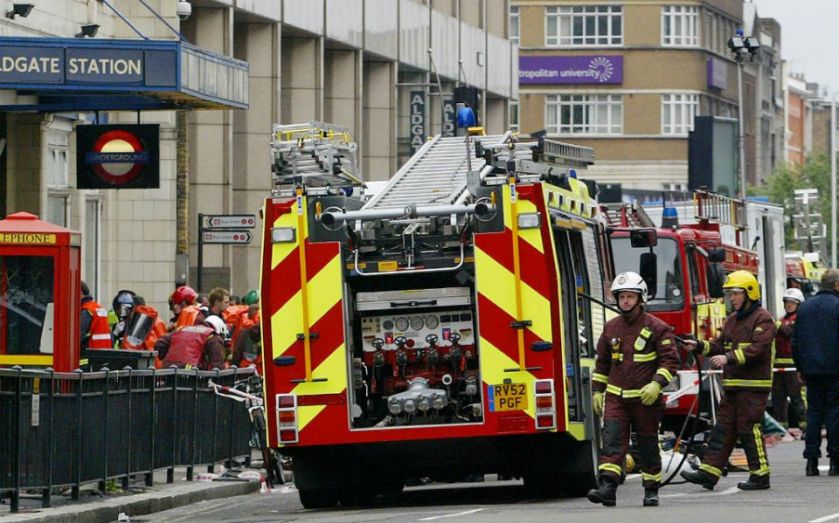We’re not prepared for another 7/7, says firefighters’ union on 10th anniversary of attacks

London firefighters are not prepared for another 7/7 because of cuts to the emergency service in the capital, it has been claimed.
The public is being misled about its preparedness for such an incident, the Fire Brigade Union (FBU) has said, on the day the capital came to a standstill in remembrance of those who lost their lives in the attacks 10 years ago.
“The massive cuts have impaired our ability to respond to all kinds of incidents," said FBU regional officer Paul Embery.
Since 7/7, the number of London firefighters has been reduced by 800 and the number of fire stations by nine, while there are 13 fewer fire engines, the union said.
"If there was a terror attack, our resources would be more stretched. To say we are better prepared is just not true, and it is grossly misleading to the public who are being encouraged to feel safer when they are not. The London Fire Brigade needs investment to deal with the growing terrorism threat, not more cuts.”
The union also claims radios issued for use underground do not work.
“Our members say the radios are erratic and that the signal cuts out intermittently. They are certainly not of the high quality the London commissioner is claiming they are,” said Embery.
Read more: What London saw: How commuters, witnesses and others in the capital watched the events of 7/7 unfold
The claims come just a week after emergency services took part in Operation Strong Tower, and anti-terror training exercise testing the response to a simulated terror attack similar to the one which took place in Paris earlier this year at the offices of satirical magazine Charlie Hebdo.
London Fire Brigade commissioner Ron Dobson said: “It is unfortunate that the London FBU have chosen a time when the whole of the capital is coming together to remember all those who lost their lives 10 years ago in order to make these claims without any evidence.”
Dobson last month claimed the fire service was better prepared than ever to respond to another 7/7 style attack, with improvements to radios, equipment and training.
"The brigade prides itself on its resilience and its ability to adapt. We reviewed our response and procedures on the day and over time made changes to our equipment, training and policies." he said.
"As a result, I feel proud to say that the brigade is more equipped and prepared than ever to deal with a major incident in the capital. The improvements we have made are a testament to all of our staff who worked on that day and cements our reputation as the best fire and rescue service in the world.”
Read more: Clock ticks on Tube strike crunch talks
A LFB spokesman added: “Since the 10 fire stations closed in 2014 we still continue to meet our average response times of getting a first fire engine to an incident within six minutes and a second, if required, within eight minutes.”
Aslef, the union representing many of the Tube drivers in the capital, called the issue "concerning".
"It’s a serious concern that someone like Paul [Embery], who is at the sharp end of this here in London, is worried about the effect of fire station closures in the capital. We have also seen the number of station staff slashed by Boris Johnson, and Transport for London, and that inevitably makes it more difficult for rail workers, as well as the emergency services, to respond as we did 10 years ago."